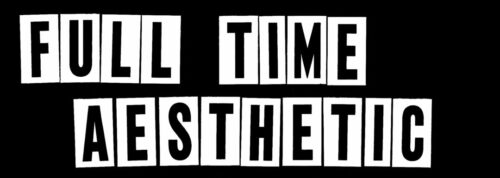Deerhoof Miracle-Level
The genre-defying creative force that is Deerhoof released their 19th LP, Miracle-Level, last Friday, and the eleven tracks on this transcendent record more than live up to its name. Next year, Deerhoof will celebrate thirty years together as a band, after forming in San Francisco in 1994, and although the line-up has shifted over the years, the present personnel are beyond formidable, including Satomi Matsuzaki on vocals and bass, Greg Saunier on drums, and guitarists Ed Rodriguez and John Dieterich. This album also marks two first for the band—the first time that they have released a record entirely in Matsuzaki’s native language, Japanese, and it is also the first album Deerhoof has ever fully captured in its entirety in a recording studio, bringing in producer Mike Bridavsky to help shape a unique and timely musical manifesto at his studio, Russian Recording. Miracle-Level finds Deerhoof looking the grim reality of the present-day doomscroll firmly in the eye and shaking it into oblivion with an effervescent beam of complex sonic hope.
The album begins with “Sit Me Down, Let Me Tell You A Story,” and Matsuzaki’s vocals certainly do begin to weave a compelling narrative that’s intriguing even if you don’t speak Japanese. It’s clear from the dynamic cadences of her vocal delivery and the fluctuations of the music from the band that we are embarking on a story journey, and the tale will take us to unexpected places. The second track, “My Lovely Cat!” delivers surprise stops on the trip, with electro-crazy guitar sounds, pouncing and slinking around just like a lovely cat, yes! (In a funny twist, Bridavsky was also the owner of the late great internet sensation/superstar cat, Lil Bub. And while this song wasn’t written specifically for her, it is dedicated to her memory.)
Brivadsky describes the unique guitar sonic magic as:
“this seemingly overcomplicated setup, which turned out to be the defining sound of the record, involv(ing) John and Ed playing semi-hollow body guitars in an isolated room, with each guitar split into three separate signals: one through their pedals into an amplifier; one from dedicated microphone pointed at the guitar, run into a second amplifier, and one that summed both of the guitars’ direct outputs into a fifth, highly distorted amplifier that combined both guitar signals.”
Whatever the technical experiments were that occurred to discover the unique aural universe of Miracle-Level, I’m in complete approval. The special guitar effects relax during the third song, “The Poignant Melody,” where Matsuzaki’s vocals float with a nuanced ethereal energy. “Everybody, Marvel,” the album’s fourth track, delivers a more rocking 90s-esque vibe, with fuzzier guitars and a more traditional song structure. (The vocals also start jumping octaves in a way that’s ridiculously catchy in what might be called the “chorus” in the second half of the song.)
“Miracle-Level,” the release’s sixth and eponymous song, starts out as essentially a slow-jam, Deerhoof-style, with the vocals floating over a sparse electronic piano. A double-clap feel drum-line kicks in underneath as the melody ascends, and even though I don’t understand the specific words Matsuzaki sings, I can feel that she’s reaching toward some kind of miracle that might save us all. Could it be? It’s right at her fingertips. This song shimmers.
The album continues to mesmerize with the infectious groove and storm of guitars on “And the Moon Laughs,” moving into “The Little Maker,” which offers the record’s most hypnotizing bass lines; there’s lots of great bass lines to choose from along the way too, but “Maker” definitely presents my fave.

Deerhoof (photo by Mike Bridavsky)
“Phase-Out All Remaining Non-Miracles by 2028” and “Momentary Art of Soul!” deliver the most prog-rock experiences of the record, where after the slinky “non-miracles” are phased out, one’s art of the soul takes on a fever pitch of Philip Glass-inspired frenetic energy. Matsuzaki’s voice rides the wave of the instrumental fluctuations on “Soul,” the penultimate, and longest, song on the album, clocking in at just over five minutes (still quite short by prog rock terms).
“Wedding, March, Flower,” concludes Miracle-Level with a contemplative almost-ballad, where drummer Greg Saunier and Matsuzaki switch places; she plays the drums and he sings lead. About the writing process for this final song, Saunier shared:
“I was flirting with my partner Sophie and sent her a video of me humming and playing the piano. Deerhoof was starting to get songs together for our next record. No one had suggested we needed any tender piano ballads, but Sophie convinced me to show it to my bandmates anyway. I was so touched when they were into it. The real kicker came when Satomi wrote lyrics. They were in Japanese, so when we first rehearsed it, I wasn’t even sure what I was singing. But Satomi had written a love song about a wedding. Satomi and I ended our marriage over 10 years ago, and it hasn’t always been easy for any of us to keep the band going. Our songs have always been one way that we all process our feelings with each other. Co-writing and performing ‘Wedding March Flower’ with her was really intense.”
Miracle-Level is full of such beautiful, strange, and imaginative intensity. After almost thirty years of such inspiring creative collaboration, Deerhoof seem like they have a lot to teach the rest of us. If you’re not already among the indoctrinated (or even if you are), then start listening to Miracle-Level exhaustively. It might show you a better way.
Miracle-Level is out now via Joyful Noise and available on Bandcamp and all major streamers. Deerhoof is currently on tour in support of the album.
Read The Bandcamp Guide to Deerhoof for insights from Greg Saunier on several of their albums.

